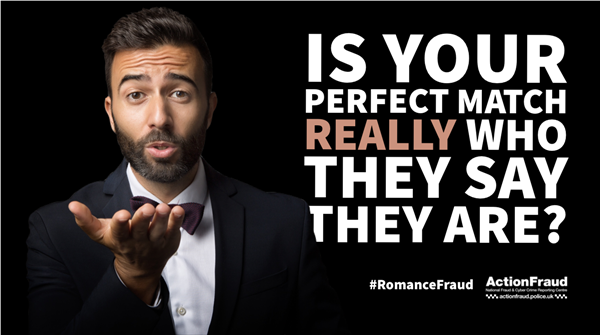|
ROMANCE FRAUD
An increasing number of people are falling victim to romance fraud, which do not only cause financial harm, but also can inflict emotional and mental damage to those victims.
With Valentine’s Day just around the corner, romance may be high on many people’s agenda as they seek an appropriate way to celebrate the day. However, at the same time criminals are using this as an opportunity to devise new scams to defraud their victims on dating Sites and social media.
At this time of the year there is a rise in Romance Frauds as the fraudsters draw their victims into false relationship, gain their confidence, before the requests for money start to come in. These are accompanied by heart rending pleas about personal, or family problems, and emergencies which need finance. Are any platforms safe? Fraudsters continue to target users of popular social media platforms such as Facebook and Instagram, as well as dating sites such as Tinder and Plenty of Fish, and many others.
Messaging sites such as Google Hangouts and WhatsApp may also be used to find unsuspecting victims. As well as conventional dating platforms, online Gaming platforms may be used to seek potential victims since there are fewer protective measures in place. Who are their targets? Females over 40 years are common victims as well as younger males, but users also need to be aware on age related dating platforms too.
How does it work?
Basically, criminals will go to great lengths to gain the victim’s trust by claiming they are in a genuine relationship which is built up over time
• They will manipulate and exploit the victim to the extent they are persuaded they are in a real and genuine relationship
• They create convincing persona such as military personnel, medical staff, engineers and many others to convince the victim they are genuine
• Then, when they ask for money, the victim is convinced there is no problem with the request
• The requests can be very emotive citing reasons such as medical emergencies, travel costs, payment of fines or taxes, or even claiming their bank account has been frozen
Tell-tale signs a friend or family member is involved in a Romance Scam
• They may be very secretive about their relationship or provide excuses for why their online partner has not video called or met them in person.
• They may be unwilling to discuss their online relationship
• They may express very strong emotions and commitment to someone they have only just met
• They have sent, or are planning to send, money to someone they have not met face-to-face. They may take out loans or withdraw from their pension to send money.
Stay safe
• Never send money to someone you have never met in person
• Never part with your bank or personal details to strangers online however genuine they claim to be
• The fact that they may request payment to another named bank account, not their own, can be another tell-tale sign of a fraudster
• Always seek advice from somebody trusted before parting with any money in any format, whether it is bank transfers, PayPal, Gift Cards or bitcoin currencies.
• Profile photos are very often fake, you can research any image by doing a “Reverse Image” search to find photos that have been copied from elsewhere.
• Never share images of yourself that you would not want your own family and friends to see
SAFER INTERNET DAY 2025 SAFER INTERNET DAY 2025 takes place 0n 11th February 2025 based on the theme of
“Too good to be True? Protecting yourself and others online” Each year the event covers an online issue/theme relevant to the things younger people see and experience online. Topics covered include:
• The impact of AI and its use by fraudsters
• What role can government and the Internet industry take to tackle this?
• What changes do young people, want to see to help protect them? A full set of resources are available online for schools and other organisations covering all young age groups - https://saferinternet.org.uk/safer-internet-day/safer-internet-day-2025 Please feel free to share these messages with any vulnerable friends, relatives or neighbours
----------------------------------------------------------------------------------------- -----------------------------------------------------------------------------------------------------
If you’ve fallen for fraud
Report it to Action Fraud on 0300 123 2040 or via actionfraud.police.uk Fake Text messages can be forwarded to 7726 to help phone providers take early action and block numbers that generate spam on their networks. You can also report fraudulent mobile calls by texting 7726 with the word “Call” followed by the fraudster’s phone number. Forward Fake Emails received to report@phishing.gov.uk If you think your bank account or personal banking details have been used fraudulently, then use the short phone number - 159 - to contact the Fraud Prevention Department of most major UK banks | 







